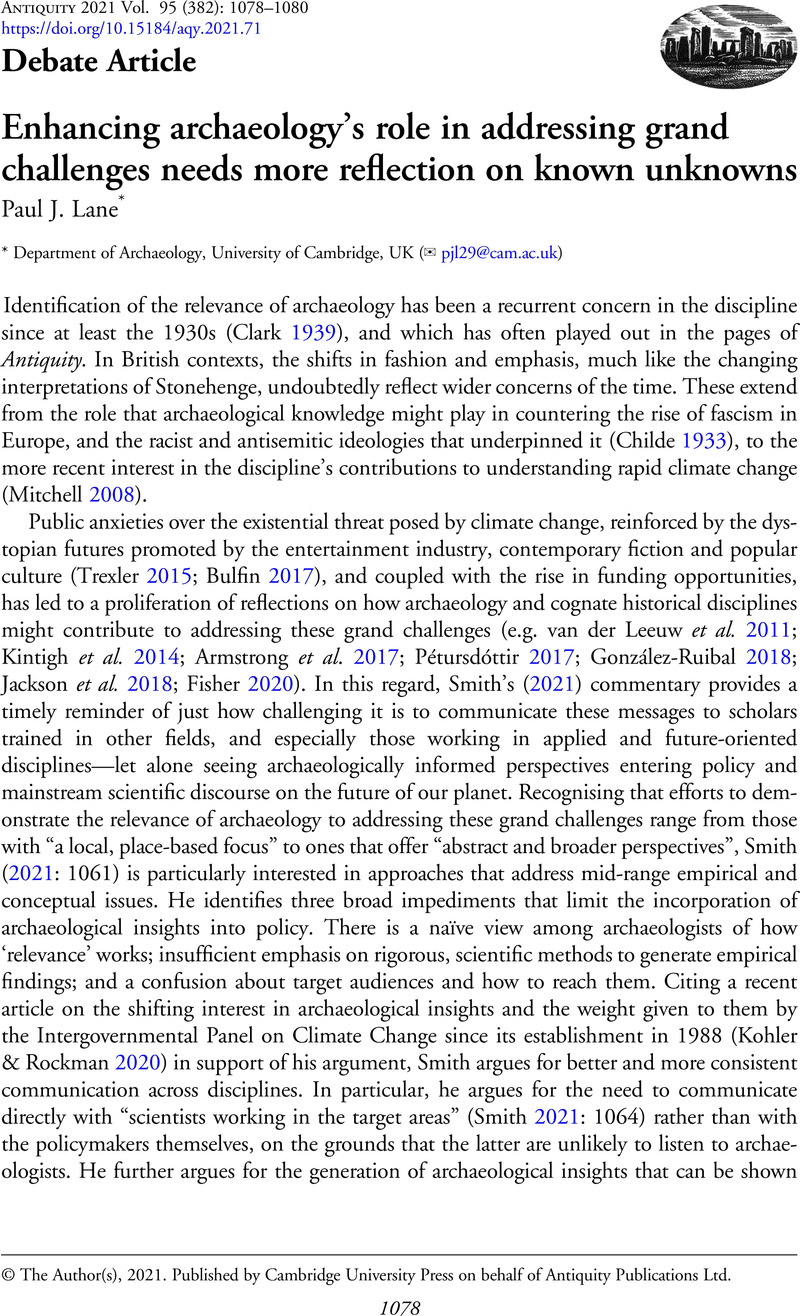Crossref Citations
This article has been cited by the following publications. This list is generated based on data provided by Crossref.
Smith, Michael E.
2021.
Archaeology, relevance and science.
Antiquity,
Vol. 95,
Issue. 382,
p.
1085.
Lowe, Kelsey M.
Williams, Doug
Wright, Nathan
Gorringe, Shawnee
Gorringe, Josh
Andrews, Ian
Ustunkaya, Meltem Cemre
Gorringe, Betty
and
Westaway, Michael C.
2023.
Ula Thirra: a case study in the geomagnetic detection of combustion features in Channel Country of far south-western Queensland.
Archaeological and Anthropological Sciences,
Vol. 15,
Issue. 3,
Logan, Amanda L.
2023.
We Need Social Archaeology to Understand Resilience and Build Usable Pasts.
African Archaeological Review,
Vol. 40,
Issue. 4,
p.
819.
Faulkner, Patrick
2024.
Standing back, thinking forward, acting globally.
Australian Archaeology,
Vol. 90,
Issue. 1,
p.
28.


